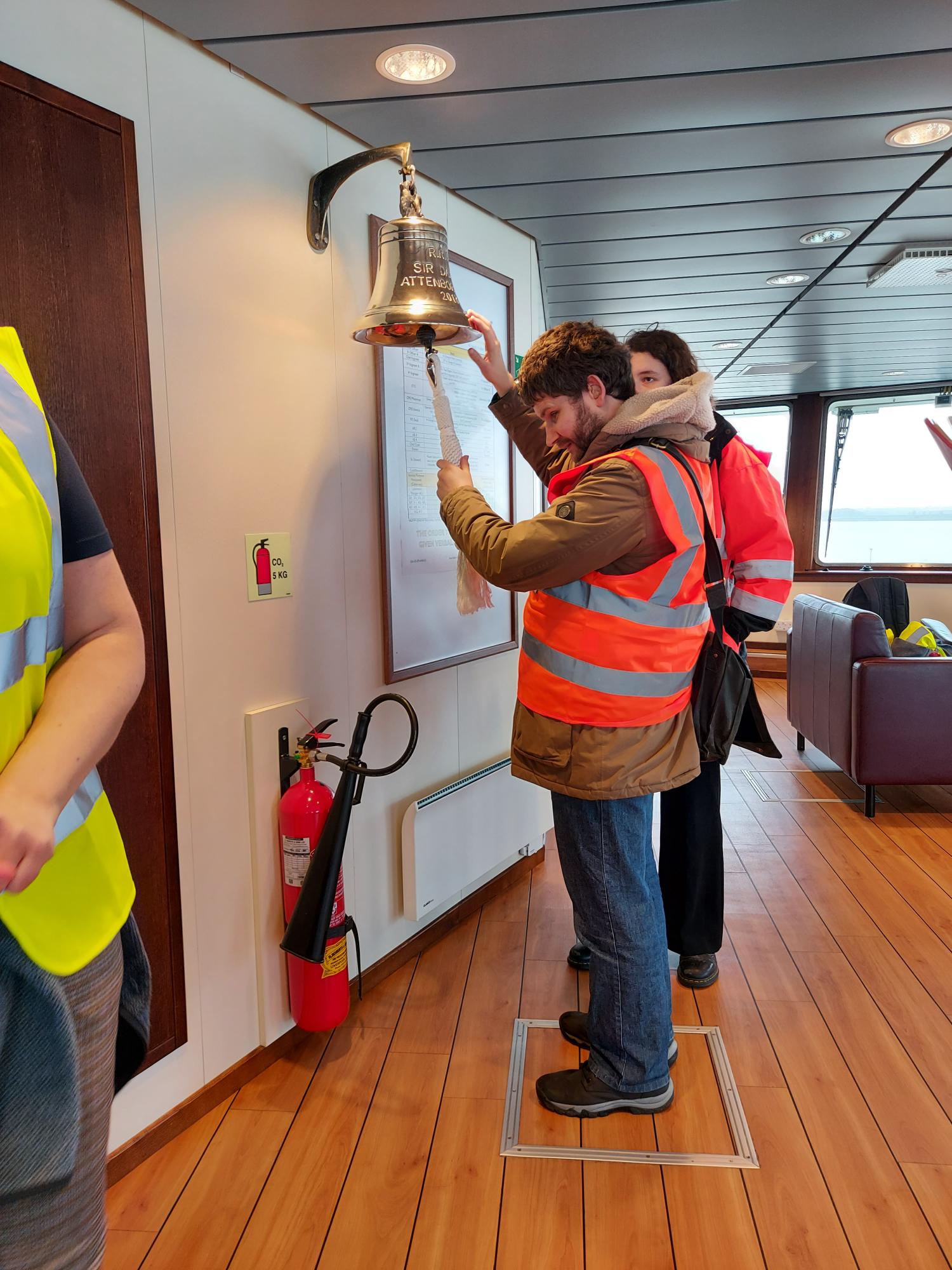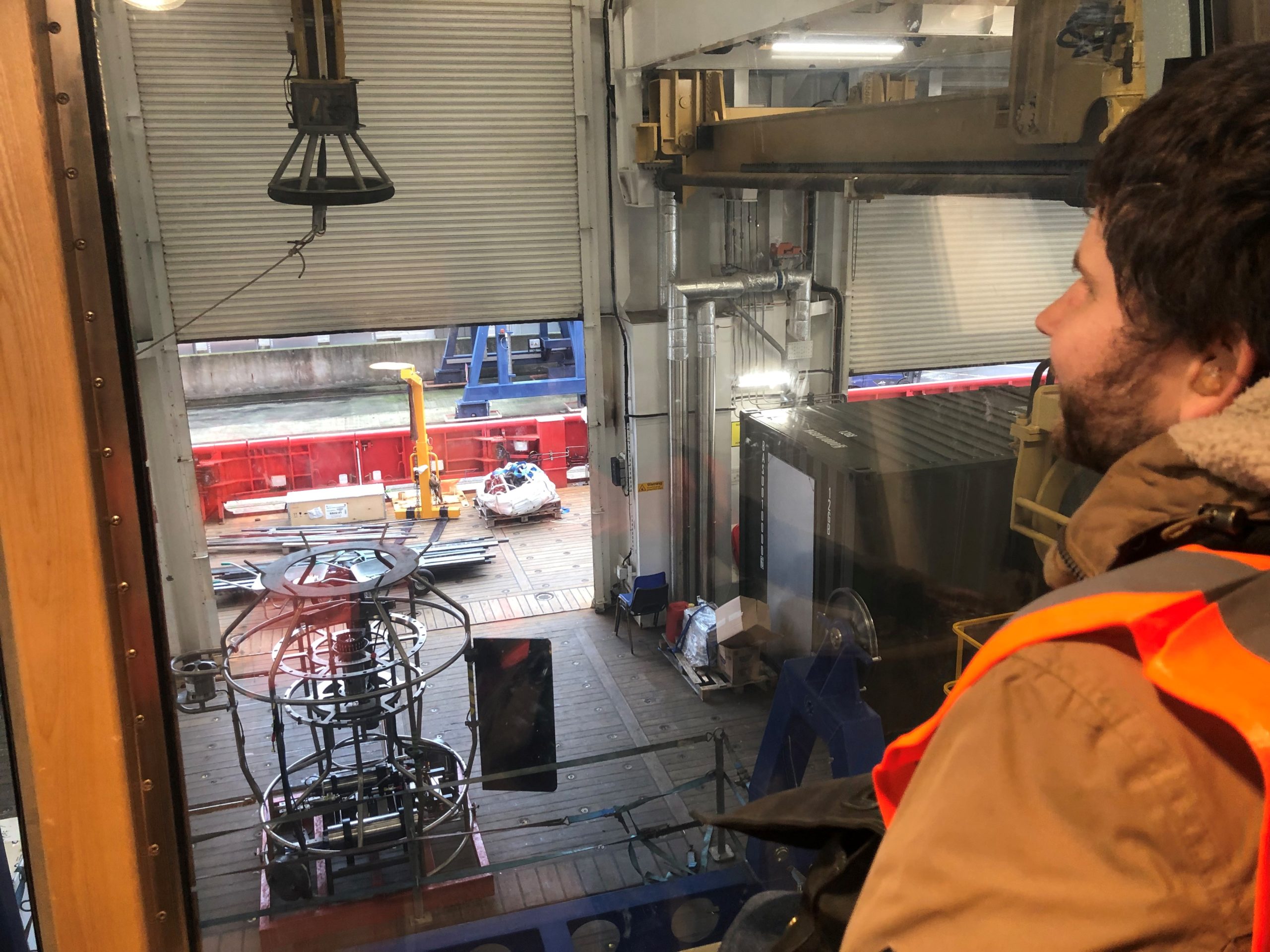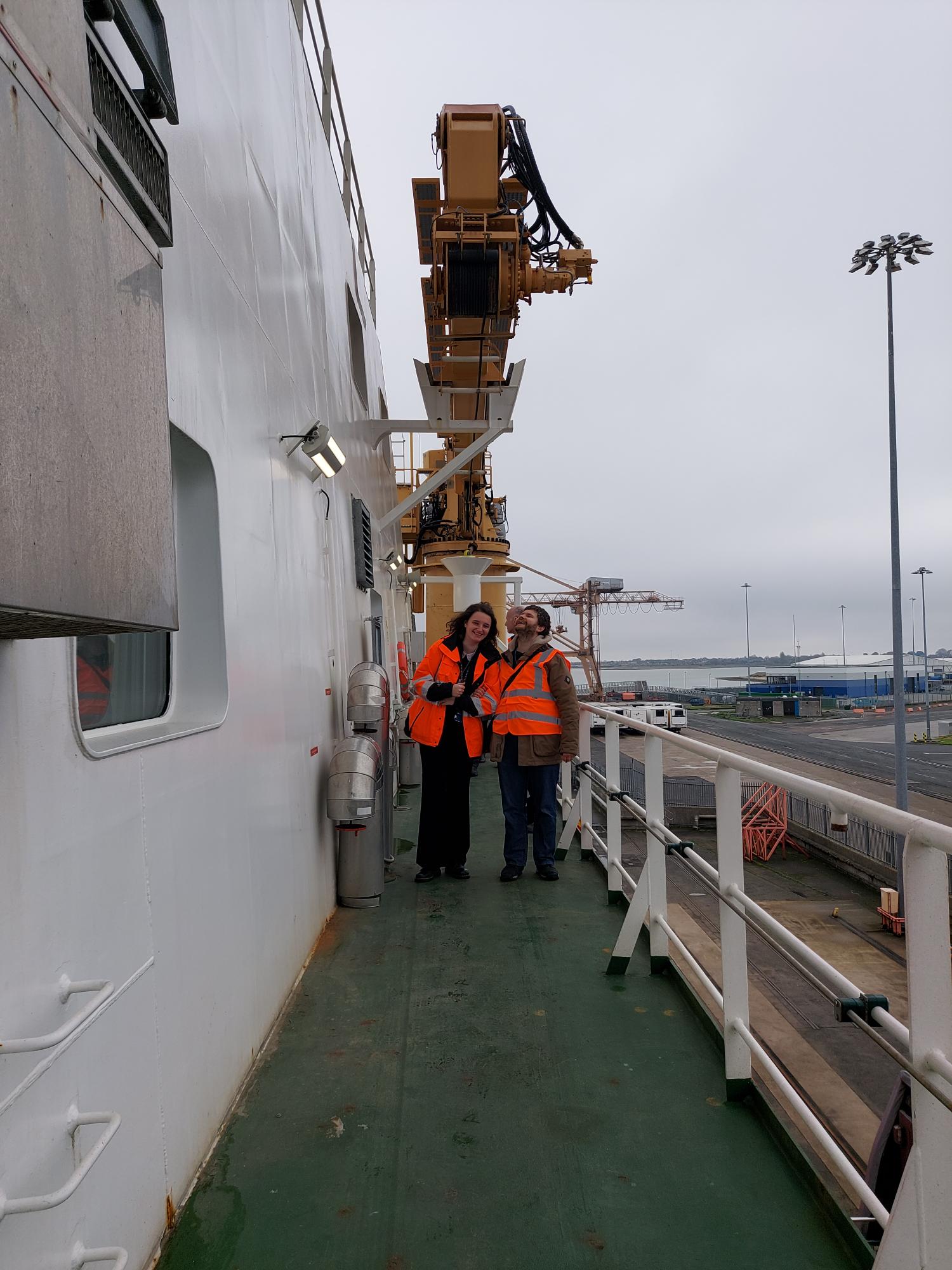All aboard: RRS Sir David Attenborough is about to depart
3 December, 2022 Diversity in UK Polar Science, RRS Sir David Attenborough
David Wilkins is the Net Zero Engagement and Support Officer at British Antarctic Survey. He recently visited our new polar ship, RRS Sir David Attenborough. On this International Day of Persons with Disabilities Day, he describes what it was like to go on board the ship for the first time before its next voyage to Antarctica – as a blind and partially deaf person.
Anyone who has ever visited the RRS Sir David Attenborough (SDA) has experiences it would take months to explain to friends, colleagues and family. The incredible technology and equipment to scan the ocean depths, collect water samples and to push through ice at the same time. The amazing sights and passionate crew, and not to mention tasty food! But if you have no sight, and hearing problems, what is it that makes this ship different from any other?

Whether a polar ship, a square rigger or indeed a smaller yacht; all ships have a few things in common. It is the sea where they belong. There is always a sense of preparing for something or waiting for something whenever the ship is in port. There is the same smell, hard to describe but once sniffed never forgotten that tells me I’m on a ship from the moment I’ve begun to climb the gangplank. Indeed a climb up the gangplank is always the beginning of something. Holding onto two ropes climbing up the steep steps brought to mind my own experiences of sailing in dirty weather and helming a ship in pouring rain and wind. So much so that I pick up my pace and ran ahead anxious to get aboard a ship again.
My first impression is the SDA’s size. There is no sense of where the walls are, or where the deck ends. On smaller ships I can often pick up the echo to navigate or guess how much space I have. Not this time. Even a walk along the deck to gain some perspective gives a sense of a huge open space. Up on deck there is the ship smell mentioned earlier, a combination of the sea, salt, a whiff of fuel and something I can never pin down but I’d call the sense of adventure.

Heading down into the Mess for lunch, my senses bring up a question that constantly plagued me right through the visit. “Is this really a ship?” The bar feels more like a recreation room or university bar, the restaurant, like a canteen in a workspace. But then climbing the stairs to a higher level answers it for me. Yes I am on a ship! It may seem strange that a staircase can bring you back to earth, but holding onto each handrail as I climbed I was reminded of climbing similar stairs in rough seas; only room for one person at a time, and the roiling, pitching staircase which seemed determined to hurl me down onto whichever unfortunate shipmate was climbing up behind. “How does the SDA feel when riding heavy seas?” I wondered.
But standing at the helm the question returned in full force. For one used to a wheel on the ship’s deck with a canopy over your head, and finding balance when the ship rolled it was quite a contrast to be eyeing up joysticks and computer screens, although the officers’ chair was most familiar. Similarly the cabins, a sofa, a TV and even a single cabin for some crew members? This was luxury. But both in certain ways told me it was a ship. The ship’s bell hanging near the wheel I could imagine the helmsman striking the bell reporting “Eight bells of the morning watch sir.” And of course, there was the fact that two officers needed to be on watch all the time when navigating the ship through pack ice, as dangerous now as it was a hundred years ago. And as for the cabins, well there’s something about the atmosphere of a ships cabin to tell you that’s where you are. Hard to describe but never forgotten, the slight feeling of nostophobia, something about its smell even when it’s been thoroughly cleaned. You know it’s made for sleeping in the high seas whether on nights when the ship is barely feeling the swell, or the kind of night where the sea seems determined to throw you out of your bunk.

The noise of a ship is a sound you never forget. Even in port there is the hum of the generators keeping the water hot, the fuel pressure right and the temperature just so. This time it was added to by the sudden blare of the alarm as the cranes lowered containers into the hold or the sudden tremendous roar as a crane went into action close to where we were, drowning out our guide’s voice. Indeed the sound is what stays with me now, a week later. Walking through the computer room (which perversely reminded me of my university study centre) and hearing of the sonar to detect marine life at sea. Hearing how the system could tell what kind of seabed we were travelling over, the different fish to be found and most of all the whale song and seabirds. The hum of the crane outside as I sat in an officer chair for a photograph and frowned at an invisible conundrum I’d spotted through the window. It all brought to mind the poet John Masefield’s anthem for all mariners,
“I must go down to the seas again to the lonely sea and sky
And all I ask is a tall ship and a star to steer her by”
The sea has always played an essential role in polar research. Even now, when the key to understanding the Antarctic is science, systematic study and of course a passion to protect what is left after clumsy exploration and ruthless exploitation, the sense of adventure and excitement never leaves it, especially on seeing the SDA. As I prepared to leave I summed things up in my mind. A huge ship, inspiring to everyone and equipped to study, research and understand. The stairs from level to level which felt as much like any tall ship I’d sailed on before. The steps on each hatch to prevent high waves and heavy seas getting into doorways. This I felt was a true modern ship. I knew the SDA would be sailing in a week, and all I could think was “please, let me come too.” I wanted to feel the throb of the ship’s engines, and to learn the feel all ships have, so similar yet as different, as they meet the waves in their own specific way. Indeed as I prepared to return to Cambridge, I had to work hard to ignore the anthem filling my head.
“All I ask is a windy day with the while clouds flying
And the flung spray and the blown spume and the seagulls crying.”